Biographies of Key Figures
Jeffrey MacDonald
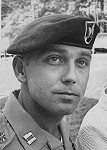 Jeffrey Robert MacDonald was born in Jamaica, Queens, New York City, New York to "Mac" and Dorothy "Perry" MacDonald. MacDonald maintains that his birthdate is October 12, 1943. At trial in 1979, his mother would testify that he was born on October 12, 1942.
Jeffrey Robert MacDonald was born in Jamaica, Queens, New York City, New York to "Mac" and Dorothy "Perry" MacDonald. MacDonald maintains that his birthdate is October 12, 1943. At trial in 1979, his mother would testify that he was born on October 12, 1942.
MacDonald had two siblings: sister Judy and older brother Jay. Their father died in March, 1966. Dorothy MacDonald, born in June of 1919, would pass away on February 10, 1991, at the age of 71.
Dorothy MacDonald described her young son's personality:
He was a very fine child. He had a sunny disposition. He was agreeable. He was a very -- he was a kind child and he was the type of boy that when he had a chore to do, did it cheerfully and without even being told to do it.At Patchogue High School, he was voted both "most popular" and "most likely to succeed," and won a scholarship to Princeton University. While at Princeton, MacDonald resumed a romantic relationship with Colette Stevenson, whom he had dated while in high school. On September 14, 1963, upon learning Colette was pregnant with his child, the couple married. Their daughter Kimberley was born on April 18, 1964.
… He was always interested in athletics. He was, I would say, a well-rounded child. In fact, when he got into high school, he said: "Mom, you know, if you expect me to be the valedictorian of the class, I probably will not be. I will do the best I can, but I really want to engage in all kinds of activities and especially in sports." He was in music, Student Council; he participated in everything -- you know -- he was just an all around kind of person.
After attending Princeton for three years, he and his family moved to Chicago in 1964, where he was accepted to Northwestern University Medical School. Their second child, Kristen, was born on May 8, 1967. The following year, upon his graduation from medical school, MacDonald completed an internship at the Columbia Presbyterian Medical Center in New York City. He joined the Army on July 1, 1969 and the entire family moved to Fort Bragg, North Carolina, where he held the rank of Captain. MacDonald was assigned to the Green Berets as a Group Surgeon to the 3rd Special Forces Group in September 1969.
On February 17, 1970, Colette was murdered by Jeffrey MacDonald, along with her two young daughters. On August 29, 1979 MacDonald was convicted of one count of first-degree murder in the death of his daughter Kristen MacDonald, and two counts of second-degree murder in the deaths of Colette and Kimberley MacDonald. The jury deliberated for just over six hours. He was immediately sentenced to life in prison for each of the three murders, to be served consecutively.
On March 27, 1991, MacDonald became eligible for parole, but did not apply, continuing to vehemently maintain his innocence and claim that a band of "hippie" intruders murdered his family. On May 10, 2005, a hearing was held regarding MacDonald's first application for parole. During the hearing, he did not admit guilt and argued that he is "factually innocent." His parole request was immediately denied. His next scheduled parole hearing will be in May 2020.
Colette MacDonald
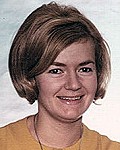 Colette MacDonald (née Stevenson) was born on May 10, 1943 in Patchogue, New York, where she was raised. In high school, she dated Jeffrey MacDonald, and they were married on September 14, 1963. Colette was pregnant with their first child at the time.
Colette MacDonald (née Stevenson) was born on May 10, 1943 in Patchogue, New York, where she was raised. In high school, she dated Jeffrey MacDonald, and they were married on September 14, 1963. Colette was pregnant with their first child at the time.
Colette attended two years at Skidmore College. Jeffrey MacDonald described her as having "an intuitive sense about people, and a wry sense of humor. She enjoyed the arts, music, movies and reading, and continued taking classes while the family lived in Chicago, and then North Carolina. She hoped to get a degree in English Literature, and possibly be a teacher someday." Her stepfather, Freddy Kassab, would say that she disliked confrontation and would try to avoid it whenever she could.
Dorothy MacDonald, Jeffrey MacDonald's mother, knew Colette at a young age:
I first knew Colette, I would guess, sometime in the junior high school years or just perhaps prior to that -- perhaps sixth grade or seventh grade. She was a very, very, you know, a very lovely girl and Jeff seemed very fond of her. The best I can tell you is that as a little girl, I felt that she was a very well dressed, a very pretty, a very responsive and sensitive person.At the 1979 trial, Dorothy MacDonald was asked, "If you had to use one word to describe Colette what would it be?" Dorothy answered, "Deligntful."
In Joe McGinniss's best-selling book, Fatal Vision, Jeffrey MacDonald describes Colette more fully:
"She never really looked as pretty in a picture as she was … she had a very fine bone structure and a nice nose … to me she was a brown-eyeed beautiful blonde … who didn't have the greatest waistline and her legs were a little skinny, but to me she was incredibly beautiful.On February 17, 1970, while living at Fort Bragg, North Carolina, Colette MacDonald was murdered by her husband, Jeffrey MacDonald. She was 26 years old at the time of her death. She is buried at Washington Memorial Park, Mount Sinai, in Suffolk County, New York.
"Colette wasn't a woman that walked into a room and stopped the room by any means … But she was the kind of woman that the more you looked at her the lovelier she became. Her warmth would come out and her big, brown luminous eyes would take on new meaning, and the little smile that when she was kidding or being cynical or funny, or, you know -- her eyes would sparkle and she'd get this little smile and it was such a beautiful meaningful face. The only one I could compare her to would be Meryl Streep. She reminds me a great deal of Colette -- that sort of quiet beauty about her.
"Colette … was to me soft and feminine and beautiful, big brown eyes, very intelligent, quiet sense of humor, not very agressive, but a magnificent woman. Without any question the neatest woman I ever met. I still see her as the epitome of womanhood."
Kimberley MacDonald
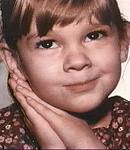 Kimberley Kathryn MacDonald was born on April 18, 1964 at Princeton Hospital in Mercer County, New Jersey.
Kimberley Kathryn MacDonald was born on April 18, 1964 at Princeton Hospital in Mercer County, New Jersey.
On his website, Jeffrey MacDonald describes Kim as "reserved and less outgoing than her little sister [Kristen], Kim was a good student who attended school on post at Fort Bragg … a very bright student and loving, gentle child -- a little girl who loved to read and draw."
On April 6, 1970, during questioning by Army Criminal Investigator Robert Shaw, MacDonald would describe Kim in more detail:
"… Kimmie was like a -- you know, she got bucked off the new pony I just got them once and she wasn't -- it took her awhile to get back on … She wasn't a take-charge [child] …On February 17, 1970, while living at Fort Bragg, North Carolina, Kimberley MacDonald was murdered by her father, Jeffrey MacDonald. She was almost six years old at the time of her death. She is buried at Washington Memorial Park, Mount Sinai, in Suffolk County, New York.
"… Kimmie was -- she was real effeminate and real soft and gentle … But if she had a nightmare, for instance, the only parable I can draw -- if she'd wake up crying from a nightmare, she'd just sit there and yell until Colette came in … If -- if Kimberly heard screaming, I would doubt if she'd -- if she would -- if she would go and investigate that. She's bright and curious, but she's also a very dependent type child, you know.
"… Kimmie -- Kimmie was always different. She was always, you know -- you had to take her by the hand, except in -- except in academic things. I mean she was the one that came home and knew how to read and write way too early and stuff like that. But like she would -- she'd get pushed around by other kids, whereas Kristy -- Kristy would defend her. Believe it or not."
Kristen MacDonald
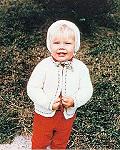 Kristen Jean MacDonald was born on May 8, 1967, at Fort Bragg, North Carolina.
Kristen Jean MacDonald was born on May 8, 1967, at Fort Bragg, North Carolina.
On his website, Jeffrey MacDonald describes Kristen as "very much the tomboy, very outgoing and precocious. She loved animals, sliding boards and birthday parties, and was a joy to all who knew her. She was a very active child and loved the outdoors."
In Joe McGinniss's best-selling book, Fatal Vision, MacDonald would say Kristen was "a tiger."
On April 6, 1970, during questioning by Army Criminal Investigator Robert Shaw, MacDonald would describe her in more detail:
"… [I]f she had a nightmare … Kristy would come charging into the [master] bedroom and dive into the bed … Kristy would go charging anywhere, partially because she's young enough so she doesn't have any fear … [Kimberley would] get pushed around by other kids, whereas Kristy -- Kristy would defend her … Kimmie would come home crying, and Kristy would run over and crack someone …"On February 17, 1970, while living at Fort Bragg, North Carolina, Kristen MacDonald was murdered by her father, Jeffrey MacDonald. She was two and a half years old at the time of her death. She is buried at Washington Memorial Park, Mount Sinai, in Suffolk County, New York.
Freddy and Mildred Kassab
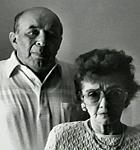 Alfred "Freddy" Kassab (January 19, 1921 - October 24, 1994) and Mildred Kassab (August 11, 1916 - January 19, 1994) were the stepfather and mother of Colette MacDonald.
Alfred "Freddy" Kassab (January 19, 1921 - October 24, 1994) and Mildred Kassab (August 11, 1916 - January 19, 1994) were the stepfather and mother of Colette MacDonald.
Freddy Kassab was born in Montreal to wealthy Syrian parents and was educated in private schools in Europe. At 18, he enlisted in the Canadian Army, assigned to intelligence work, and made six parachute drops behind enemy lines while serving as a liaison with the French resistance. He was wounded four times during the war, and suffered a tremendous loss when his young Scottish wife and baby daughter were killed by a German bomb dropped on London while he was in Italy on a mission. After the war, he returned to the United States, living in New York and working as a salesman at a Sears, Robebuck store in Brooklyn.
He met Mildred Stevenson in 1957 on Long Island. She was the mother to two children, Colette, then 13, and Bobby Stevenson, then 17. Her husband had committed suicide in 1956. Kassab, who was in the process of divorce from his second wife, would become her husband within a year.
The Kassabs enjoyed a luxurious lifestyle after being married, but then fell on hard times. Mildred opened a dress store in her home town of Patchogue, New York, but it had to be sold at a a loss. They sold their home, moved to an apartment on Washington Square, and then returned to Long Island. There, Freddy found work selling large quantities of liquid egg yolk to manufacturers of various kinds.
When his son-in-law, Jeffrey MacDonald, came under suspicion as the prime suspect in the murders of Colette, Kimberley and Kristen MacDonald, Kassab was his strongest supporter. That would change after Kassab scrutinized the evidence and the words of Jeffrey MacDonald, and Kassab then became MacDonald's most ardent adverary. When the Army declined to pursue a prosecution, Kassab began a crusade for justice which would continue until his death.
In 1987, Mildred Kassab sued Jeffrey MacDonald over proceeds from Joe McGinniss's book Fatal Vision. In December, 1988, she offered to settle the lawsuit for the $325,000 he received from the author of his life story. According to one news report, "Under terms of the proposed settlement, Mildred Kassab would turn the money -- now impounded by the Los Angeles Superior Court -- over to United Way of America to honor her slain daughter, Colette, and granddaughters Kimberly and Kristen." After four days of trial, the judge decided that the settlement would be divided between MacDonald's attorneys ($104,000), MacDonald's mother ($93,000) Mildred Kassab ($80,000K) and the remainder would go to Jeffrey MacDonald.
The deaths of their beloved daughter and grandchildren, and the knowledge that the victims had died at the hands of their own son-in-law, was excruciatingly devastating for Freddy and Mildred, an event from which neither of them would fully recover. However, their quest for justice was finally fulfilled, and Jeffrey MacDonald was convicted of those crimes in August of 1979.
William Ivory
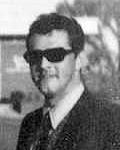 William Ivory was the CID Duty Investigator and the lead agent in the original investigation.
William Ivory was the CID Duty Investigator and the lead agent in the original investigation.
In 1971, Ivory was recruited by the CID to join the reinvestigation team and he was inducted into the CID Hall of Fame in 2007.
Army Criminal Investigation Division Chemist Janice Glisson met with William Ivory and Robert Shaw during the initial stages of the investigation, and felt that "They did their jobs well."
Dennis Rogers was a Staff Sergeant at Fort Bragg when the murders occurred. Rogers became a newspaper reporter in 1971, and the North Carolina native has written for the Raleigh News & Observer since 1976. He covered the trial in 1979, and spoke at length with the MacDonald defense team. In one interview, Rogers stated that despite the "ripping they took," investigators William Ivory, Robert Shaw and Franz Grebner "nailed it down that first day and after their interview with MacDonald, they knew they had him."
Peter Kearns
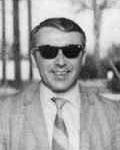 Peter Kearns was Chief Warrant Officer and lead investigator of the CID reinvestigation. In 1971, Kearns and Pruett questioned MacDonald, Kearns provided case updates to Mildred Kassab, and Kearns was also present when Freddy Kassab was allowed inside 544 Castle Drive.
Peter Kearns was Chief Warrant Officer and lead investigator of the CID reinvestigation. In 1971, Kearns and Pruett questioned MacDonald, Kearns provided case updates to Mildred Kassab, and Kearns was also present when Freddy Kassab was allowed inside 544 Castle Drive.
The CID reinvestigation began in the latter part of 1970 and was completed in 1972. Colonel Jack Pruett and warrant officer Peter Kearns were provided with office space in the Federal Building in downtown Fayetteville. They assembled a team of eight agents and went over the original investigation with a fine tooth comb. Pruett and Kearns concluded that while mistakes were made, the evidence collected at the crime scene was not contaminated by the MP's and medics that arrived at 544 Castle Drive the morning of February 17, 1970.
The first order of business for Pruett and Kearns was to interview Jeffrey MacDonald. This interview took place in the library of the Philadelphia Bar Association, on March 20, 1971. MacDonald's lawyer, Bernie Segal, was present at this interview and some important information was culled from MacDonald by Pruett and Kearns. MacDonald was shown photographs of Helena Stoeckley, Cathy Perry, and the New York Four. MacDonald stated that he did not recognize any of these individuals. MacDonald also admitted that he had scratch marks on his upper left chest. This was consistent with his admission at the Article 32 hearings that he had "some scratches on my left pectoral region, the upper left chest with some, again the same type of puncture wounds, two or three."
Pruett and Kearns then got the FBI to look at the evidence in this case for the first time. They also instructed their staff to investigate any individuals who could be deemed as suspects.
On June 1, 1972, the 10,000-page reinvestigation report was submitted to the Department of Justice. The report recommended that Jeffrey MacDonald be prosecuted for the murder of his family. The reinvestigation report was beyond thorough as evidenced by the fact that 699 people were interviewed, leads were pursued in 32 states, and the evidence was reanalyzed by both the CID and the FBI.
Kearns authored the 10,000-page CID reinvestigation report. He also produced and narrated a film on the case, and he later presented that film to the Justice Department.
Peter Kearns died on August 28, 2007.
Helena Stoeckley
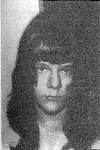 Helena Stoeckley was, for a time, considered to be a possible suspect in the murders of Colette, Kimberley and Kristen MacDonald. Although he did not recognize her picture when shown it in 1970, nor when he saw it again in 1979, MacDonald claimed that Stoeckley was one of several "intruders" he saw in his apartment in the early morning hours of February 17, 1970.
Helena Stoeckley was, for a time, considered to be a possible suspect in the murders of Colette, Kimberley and Kristen MacDonald. Although he did not recognize her picture when shown it in 1970, nor when he saw it again in 1979, MacDonald claimed that Stoeckley was one of several "intruders" he saw in his apartment in the early morning hours of February 17, 1970.
Stoeckley graduated from high school in June of 1969, began associating with individuals with significant drug histories, and was subsequently kicked out of her parent's home as a result of her own severe drug use. Following the MacDonald murders, Stoeckley began a 13-year journey involving confessions, denials, loss of memory, and physical and mental deterioration.
The first time that Stoeckley attempted to insert herself into this case was on February 19, 1970. Pat Reese was a well respected newspaper reporter for the Fayetteville Observer and through his work as a drug counselor, he was aware of Stoeckley and her group of friends. Stoeckley told Reese that she had no memory of her whereabouts on February 17th due to her excessive drug use. This version of events was the only story that Stoeckley would repeat in the next 13 years. Her multiple confessions over the next decade were a series of contradictions and/or stories which were at odds with the facts in the case.
On October 13, 1970, after one of the longest Article 32 hearings in U.S. Army history, Colonel Rock issued a report recommending that charges be dismissed against MacDonald because they were "not true," and he recommended that civilian authorities investigate Stoeckley.
During the 1979 criminal trial proceedings against Jeffrey MacDonald, his attorney Bernie Segal concentrated on the poor quality of the C.I.D. investigation and the existence of other suspects, specifically Helena Stoeckley.
During the defense stage of the 1979 criminal trial, Segal called Helena Stoeckley to the witness stand, intent on extracting a confession from her that she had been one of the intruders MacDonald claimed had entered his family's apartment, murdered his family, and attacked him. Over the past nine years, Stoeckley had made several contradictory statements regarding the murders, sometimes saying she was involved, other times stating she had no recollection of her whereabouts the evening of the murders. Just prior to her testimony, separate interviews had been conducted by the defense and the prosecution, during which she denied ever being in the MacDonald apartment or ever seeing MacDonald before that very day in court. Afterwards, Segal argued for the introduction of testimony from other witnesses to whom Stoeckley had confessed. Dupree refused, in the absence of any evidence to connect Stoeckley to the scene, citing her history of long-term drug abuse.
In 2005, Jimmy Britt, who had worked as a Deputy U.S. Marshal during the 1979 trial, came forward to claim that during the trial he heard Helena Stoeckley admit to the prosecutor of the case, Jim Blackburn, that she was present at the MacDonald residence at the time of the murders and that Blackburn threatened her with prosecution if she testified. Stoeckley, however, met with counsel for the defense prior to this alleged meeting with Blackburn, and she told them that she had no memory of her whereabouts the night of the murders. Defense Attorney Wade Smith advised Judge Dupree that Stoeckley had testified on the stand essentially the same as she had stated in the defense interviews. Also, she contacted Dupree during her retention as a material witness to claim she was terrified, not of the prosecutors, but of Bernie Segal, the lead defense attorney. Britt died on October 19, 2008.
In November 2008, Judge Fox denied MacDonald's motion regarding the statement of Britt. This denial was based on the merits of the claim, generally that Stoeckley was unreliable, as she had made many varying statements regarding the murders. Also, that MacDonald's claim that she was expected to testify in a manner favorable to him until threatened by Blackburn is contradicted by the trial records.
Subsequent to the November 2008 decision, a government motion to modify the decision to reflect that Britt's claims were not factual was denied. Included with the motion was jail documentation establishing that Stoeckley was originally confined to the jail in Pickens, South Carolina, not Greenville, South Carolina, as Britt had claimed. Also included were custody commitment and release forms indicating that agents other than Britt transported Stoeckley to the trial.[24] MacDonald appealed the district court's denial of his claim to the 4th Circuit Court of Appeals. In 2011, the Court of Appeals reversed the District Court's decision, remanding MacDonald's claims back to the District Court with instructions for consideration.
On January 14, 1983, Helena Stoeckley, aged 32, was found dead in her small apartment. She had apparently been dead for several days, and an autopsy revealed that she died of pneumonia and cirrhosis of the liver.
Jim Blackburn
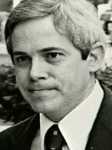 Jim Blackburn was the lead counsel at the 1979 criminal trial against Jeffrey MacDonald.
Jim Blackburn was the lead counsel at the 1979 criminal trial against Jeffrey MacDonald.
A native of Winston-Salem, North Carolina, Blackburn graduated from Wake Forest University and the University of North Carolina at Chapel Hill School of Law. His legal background includes serving as Special Deputy Attorney General in the North Carolina Attorney General's office, First Assistant United States Attorney for the Eastern District of North Carolina, United States Attorney, and several years in private practice.
In the spring of 1980, Blackburn was appointed United States Attorney and remained in that position until late September, 1980, when he resigned to enter private law practice in Raleigh. Throughout the 1980's and through 1992, he was a prominent North Carolina attorney, handling both criminal and civil matters.
In 1993, Blackburn left the practice of law. Although appearing to be at the top of his profession based on all standard measures of success, inwardly, he suffered from the pressures that often come with that success. A drive to win at any cost, a strong desire to be all things to all people and an underlying depression took their toll, ending his legal career suddenly and spectacularly when a number of ethical misdeeds were discovered. He was found guilty of several ethical violations. In April, 1993, he turned in his license to practice law to the North Carolina Bar which subsequently disbarred him from legal practice. He served time in prison, suffered from depression and waited tables at the restaurant where he formerly entertained his clients. Eventually he was hired by then State Treasurer Harlan Boyles to serve as the Assistant to the Director of the State's Teacher and State Employees' Retirement System.
Blackburn documented these experiences in his book, Flame-out: From Prosecuting Jeffrey MacDonald to Serving Time to Serving Tables. He now has a another successful career, sharing his story with others through speaking engagements and teaching NC Bar-approved CLE courses on Ethics and Professionalism, Mental Health/Substance Abuse and Trial Preparation.
Brian Murtagh
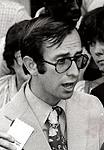 Brian Murtagh, along with lead prosecutor Jim Blackburn, was co-counsel at the 1979 criminal trial against Jeffrey MacDonald.
Brian Murtagh, along with lead prosecutor Jim Blackburn, was co-counsel at the 1979 criminal trial against Jeffrey MacDonald.
Murtagh has been licensed to practice law in Washington, D.C. since 1972. He first became associated with the prosecutive efforts on behalf of the United States in the Jeffrey MacDonald case in December 1971 when he was the Assistant Staff Judge Advocate assigned to Headquarters, United States Army Criminal Investigation Command (HQ-USACIDC) in Washington, D.C.
From December 1971 to January 1975, Murtagh was continuously involved with the investigation of the MacDonald case. At the age of 27, he was assigned as the military liaison officer from HQ-USACIDC to assist U.S. Department of Justice Criminal Division Attorney Victor Worheide during the grand jury investigation.
He joined the Department of Justice in March 1975, subsequent to the January 25, 1975 indictment of Jeffrey MacDonald. From March 1975 through May 1984, he was employed as a Trial Attorney in the Organized Crime and Racketeering Section, Criminal Division, U.S. Department of Justice.
From July 16, 1979 to August 29, 1979, he was co-counsel to James Blackburn, First Assistant United States Attorney, Eastern District of North Carolina, in the trial of Jeffrey MacDonald. The prosecutorial efforts of Murtagh and Blackburn were successful, resulting in a conviction and life sentence for MacDonald.
Murtagh currently still serves as an attorney for the U.S. Department of Justice, and continues to be at the forefront in the MacDonald case as evidenced by his presentation at MacDonald's parole hearing in 2005, and his co-authorship of every government response to legal motions filed by the MacDonald defense team.
Bernard Segal
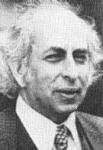 Bernard Segal, known to many as "Bernie," was a defense attorney from Philadelphia. He successfully represented Jeffrey MacDonald at the Article 32 hearing in the summer of 1970, and again -- this time unsuccessfully -- at the crimeinal trial against Macdonald in 1979. He died on August 11, 2011 at his home, at the age of 81. Segal was survived by his children, Amy Segal of Richmond, Beth Segal of New York City and Eric Segal of Gainesville, Fla.; and two grandchildren.
Bernard Segal, known to many as "Bernie," was a defense attorney from Philadelphia. He successfully represented Jeffrey MacDonald at the Article 32 hearing in the summer of 1970, and again -- this time unsuccessfully -- at the crimeinal trial against Macdonald in 1979. He died on August 11, 2011 at his home, at the age of 81. Segal was survived by his children, Amy Segal of Richmond, Beth Segal of New York City and Eric Segal of Gainesville, Fla.; and two grandchildren.
Born in Philadelphia, Segal was the son of poor Polish immigrants. At Temple University, he was student body president and editor of the school newspaper. He was also an Army officer in the Korean War. In 1959 he graduated from the University of Pennsylvania Law School.
For 12 years, Segal worked in Philadelphia, defending civil rights and antiwar protesters. In Mississippi, he worked as a volunteer attorney for the American Civil Liberties Union. In 1972, he came to Golden Gate University in San Francisco, where he would spend the next 39 years teaching law. According to one source, students described him as "dedicated and creative." Former student Wendy Bemis-Albertson, who became his teaching assistant, said, "He was always available, incredibly kind and generous with his time. There was so much more to learn from him than you could learn in a classroom," She said he taught her that "there are no little people," and that "the person who can tell the best and clearest story is most likely to impress the jury. If you can't win, at least you get a good story from it."
Segal's most well-known client was Jeffrey MacDonald. Segal's defense during the Article 32 hearing in 1970 concentrated on the poor quality of the Army's C.I.D. investigation and the existence of other suspects, specifically a woman named Helena Stoeckley. Along with co-counsel Wade Smith, Segal would again represent MacDonald during the United States vs. Jeffrey MacDonald criminal trial in 1979. Segal and Smith were confident of an acquittal from the first day, but ultimately, they lost the case.
Wade Smith
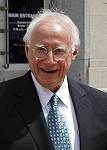 Wade Smith served as co-counsel to Bernie Segal during the 1979 criminal trial of Jeffrey MacDonald.
Wade Smith served as co-counsel to Bernie Segal during the 1979 criminal trial of Jeffrey MacDonald.
Smith and his wife Ann have two children, Karen Linehan and Robyn Yigit Smith. They have four grandchildren, two girls, Kelsey Linehan and Dylan Linehan, and two boys, Kenan Smith Yigit and Aslan Asa Byrum Yigit.
Smith was born in 1937 in Albemarle, North Carolina. His mother and father were textile workers, having barely survived the Great Depression. Smith and his brother, Roger, were raised in a mill village called New Town. The family attended North Albemarle Baptist Church. Smith recalls that they went to church "every single time the doors opened." In high school Smith was an All American football player with many opportunities to play on college football scholarships. But he chose, instead, an academic scholarship, The Morehead, at the University of North Carolina.
After completing his undergraduate work and earning an A.B. in English, Smith attended the University of North Carolina School of Law, graduating in 1963. After a year as a clerk, Smith joined friend and fellow law clerk, J. Harold Tharrington, to found the law firm Tharrington Smith.
In 1973 Smith was elected to the North Carolina House of Representatives and was reelected in 1975. In 1977 he retired from politics to devote full time to the practice of law. In 1985 he was elected to a one year term as chair of the North Carolina Democratic Party.
Joe McGinniss
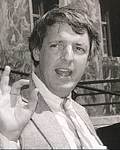 Joe McGinniss (December 9, 1942 - March 10, 2014) was an American writer of nonfiction and novels, and the author of Fatal Vision, the best-selling book about the murders of Colette, Kimberly and Kristen MacDonald and the criminal proceedings against Jeffrey MacDonald.
Joe McGinniss (December 9, 1942 - March 10, 2014) was an American writer of nonfiction and novels, and the author of Fatal Vision, the best-selling book about the murders of Colette, Kimberly and Kristen MacDonald and the criminal proceedings against Jeffrey MacDonald.
McGinniss first came to prominence with his book The Selling of the President, 1968 which described the marketing of then-presidential candidate Richard Nixon.
McGinniss graduated from the College of the Holy Cross in 1964 and became a general assignment reporter at the Worcester Telegram in Worcester, Massachusetts. Within a year he left to become a sportswriter for The Philadelphia Bulletin. He then moved to The Philadelphia Inquirer as a general interest columnist.
In 1979 McGinniss became a writer-in-residence at the L.A. Herald Examiner. Next came the McGinniss trilogy of true crime books, Fatal Vision, Blind Faith and Cruel Doubt. All three books were made into TV miniseries.
His 1983 account of the Jeffrey MacDonald murder case, Fatal Vision, was a best-seller. MacDonald sued McGinniss in 1984, alleging that McGinniss pretended to believe MacDonald innocent after he came to the conclusion that MacDonald was guilty, in order to continue MacDonald's cooperation with him. After a six-week civil trial that resulted in a hung jury, McGinniss's publisher's insurance company chose to settle out of court with MacDonald for $325,000.
Information on this page was compiled from a variety of sources, including Jeffrey MacDonald's website, documents in the public domain, and excerpts used with the permission of the authors
